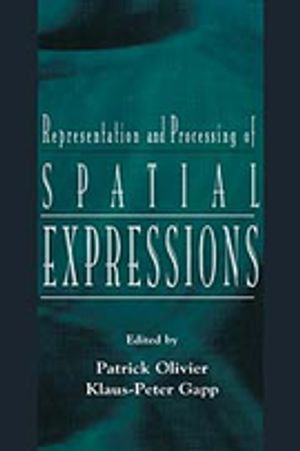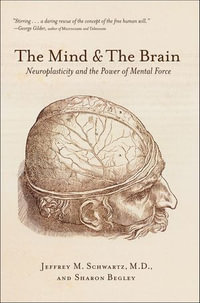
eTEXT
Representation and Processing of Spatial Expressions
By: Patrick Olivier, Klaus-Peter Gapp
eText | 1 January 1998 | Edition Number 1
At a Glance
eText
$73.70
or
Instant online reading in your Booktopia eTextbook Library *
Read online on
Desktop
Tablet
Mobile
Not downloadable to your eReader or an app
Why choose an eTextbook?
Instant Access *
Purchase and read your book immediately
Read Aloud
Listen and follow along as Bookshelf reads to you
Study Tools
Built-in study tools like highlights and more
* eTextbooks are not downloadable to your eReader or an app and can be accessed via web browsers only. You must be connected to the internet and have no technical issues with your device or browser that could prevent the eTextbook from operating.
ISBN: 9781135690281
ISBN-10: 1135690286
Published: 1st January 1998
Format: ePUB
Language: English
Number of Pages: 296
Publisher: Taylor & Francis
Edition Number: 1
You Can Find This eBook In
This product is categorised by
- Non-FictionPsychologyPsychological Theory, Systems, Schools of Thought & Viewpoints
- Non-FictionComputing & I.T.Computer Science
- Non-FictionComputing & I.T.Information Technology General IssueLegal Aspects of IT
- Non-FictionComputing & I.T.Information Technology General IssueEthical & Social Aspects of IT
- Non-FictionPsychologyCognition & Cognitive PsychologyPerception
- Non-FictionLawLaws of Specific JurisdictionsIT & Communications Law
























